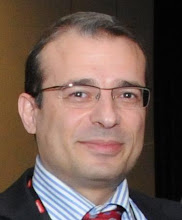How Media Reports the Same Thing Differently
September 6, 2005 was marked a crucial point forward for achieving Chavez’s goal. That day, leaders of Caribbean countries got together to finalize and sign the PetroCaribe initiative, an initiative that focuses on oil trade.
Some media sources announced the event. However, you would be confused if you read more than one media source reporting the same event. For example, I got confused in understanding the answers to the following questions: How many countries were present? How many countries signed the initiative? What did the initiative offer? Below you will find the relevant parts of the information I gathered from several reports. [emphasis are added].
Here is what Forbes reports on September 7, 2005:
“Chavez and the leaders of nine nations signed accords Tuesday that set out the details of the Venezuelan leader's Petrocaribe initiative”
"We have the opportunity to break from the path of imposed domination and servitude," Chavez told leaders and representatives of 16 nations gathered at a Jamaican resort.
This is what Los Angeles Times said about it on September 7, 2005:
Chavez and the leaders of nine nations signed accords Tuesday that …
Under the plan, Caribbean governments would pay market price for Venezuelan oil, but they would only be required to pay a portion of the cost up front and could finance the rest over 25 years at 1 percent interest, Jamaican Prime Minister P.J. Patterson told the gathering. Governments could also pay for part of the cost with services or goods such as rice, bananas or sugar while oil-rich Venezuela would provide assistance in expanding shipping and refining facilities.
Here is the BBC’s comment, again on September 7, 2005
Caribbean leaders have signed up to Petrocaribe, an oil initiative put forward by Venezuela's President Hugo Chavez aimed at offering cheap crude.
Venezuela is the world's fifth-largest oil producer and will offer oil at preferential rates to those countries. Signatories will be allowed to defer payments, as well as covering costs with goods like rice, bananas or sugar. Two countries - Barbados, and Trinidad and Tobago (which produce its own oil) - have declined to join the agreement at present.
Below is what BusinessWeek online said on September 6, 2005 but then disappeared. Exact piece, however appeared in yahoo business news.
“Chavez planned to sign a series of accords that would set in motion his Petrocaribe initiative -- a plan to provide oil at preferential terms that …”
Governments could also pay for part of the cost with services or goods such as rice, bananas or sugar while oil-rich Venezuela would provide assistance in expanding shipping and refining facilities.
"We have the opportunity to break from the path of domination and servitude," Chavez told leaders and representatives of 16 nations gathered at a Jamaican resort.
The Jamaica Observer’s headline on September 7, 2005 was
“14 countries sign on to Venezuela oil deal.”
VENEZUELA and 14 Caribbean nations last night signed the historic PetroCaribe agreement under which Caracas will provide oil to Caribbean countries on concessionary terms
In the meantime, Raphael Ramirez, Venezuela's minister of energy and petroleum, said the delegations of the 14 PetroCaribe member countries, in addition to the observers from Trinidad and Tobago, Barbados, Bahamas and the Caribbean community (Caricom) had participated in the Montego Bay meetings
In the closing moments of the summit, President Fidel Castro of Cuba suggested the setting up of an "Electro-Caribe" along the lines of Petro-Caribe, to deal with electricity problems, and President Chavez said he would consider it.
Well, well. Please let me know if you have the right answers.


0 Comments:
Post a Comment
<< Home